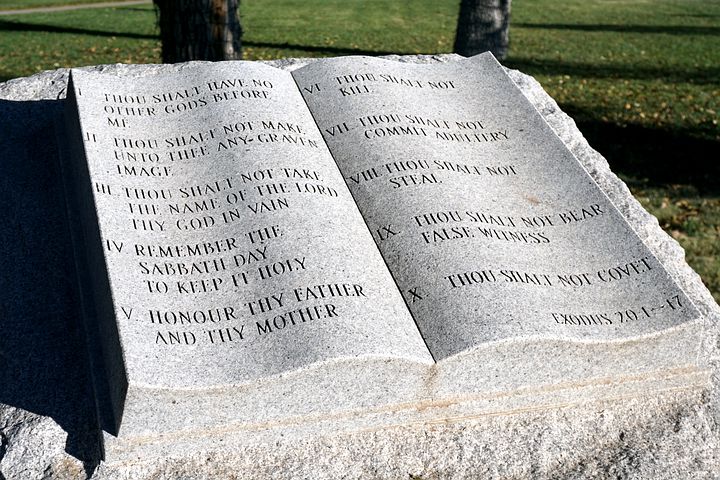
An insightful reader wrote to me on my Facebook page asking a question similar to one my editor asked during my edits of Rachel. The question had to do with the Law of Moses and why I chose to portray the patriarchs and their wives observing laws that were not yet written. Here is my answer to that reader. I hope it gives insight to others who might have the same questions but didn’t ask them. “People were aware of sin from the time of Adam. In Noah’s day, for instance, God said that the hearts of the people were “only evil continually” – except for Noah, who found favor in God’s eyes. If their hearts were evil, they had to know good – as the serpent told Eve they would know both good and evil if they ate of the fruit. Cain knew his sacrifice didn’t meet God’s standards and was angry when Able’s was accepted and his was not. Where did the standard for good come from if not in some form from God?

We see our first glimpse of “clean” and “unclean” in Genesis at the time of the Flood. These laws don’t appear to have been spelled out until the time of Moses, but Noah was told to take both clean and unclean animals on the ark. How did he know there was a distinction if not for God somehow conveying this to him?
Rachel told her father that she could not rise to greet him because the way of women was upon her. Though it was possible she was lying, we can still surmise that her period was a significant excuse that would keep Laban (her father) at bay. Either she just didn’t feel good enough to get up, or we can assume that anything she sat on or touched would be unclean. If women were considered unclean during their cycles, based on the unwritten but passed down laws and traditions of the past, then Rachel was showing even more disdain for her father’s idols by claiming her period and sitting on those objects. Her father didn’t know this, of course, but it is possible that she was silently declaring her abhorrence for her father’s gods.
The law of “tithing” to support the priests was not enacted until Moses, but both Jacob and Abraham practiced it. Abraham gave a tenth to Melchizedek, king of Jerusalem, and Jacob promised God a tenth of all God would give him.
Some have suggested that God gave some type of guidance to Adam about right and wrong, even if it was something just impressed upon the hearts of men and women. (God did say during Noah’s time that the hearts of men were only evil continually) Adam, knowing God’s standards, likely passed them on to Shem, who passed them down to future generations. Some suggest there was a “school of Shem” or a “school of Eber” – another of Adam’s descendants in the line of Abraham, who passed on God’s truth to their offspring. It is also suggested that the name Hebrew comes from the ancestor Eber.

During or before Abraham’s day, other cultures had explicit laws, such as the Code of Hammurabi, which detailed many of the things that later appear in the Law of Moses. Since the knowledge of good and evil came with the first taste of sin, and sacrifices for sin were known from the time of Adam until Messiah Yeshua, I think we are safe to assume that some of God’s standards or laws were written on the hearts of men from the beginning in some form or another. Certainly some men walked with God and others did not.
Whether women were considered unclean during their periods seems like a natural conclusion the people might have come to even before the written Law was given to Moses. God had told Noah that the life was in the blood, and they were to have great respect for the blood of another. Whether they would have considered touching a woman during that time as disobedient to God, I don’t have concrete proof for that. But based on the examples that God punished sin (i.e. destroying Sodom and Gommorah, the Flood, etc.) shows us that people had to know they were rebelling against God, even before there was a written Law to break. The written Law simply made the sin that much worse, for now they were without excuse.
I hope that makes sense. I could be wrong in my interpretation, but based on taking in the whole of Scripture, and studying ancient cultures I don’t think the ideas I presented are far fetched. But that is also why I write fiction. I can’t prove these things happened exactly as I imagine. But I hope they give a glimpse to readers of the heart of these people who weren’t so very different from us.”